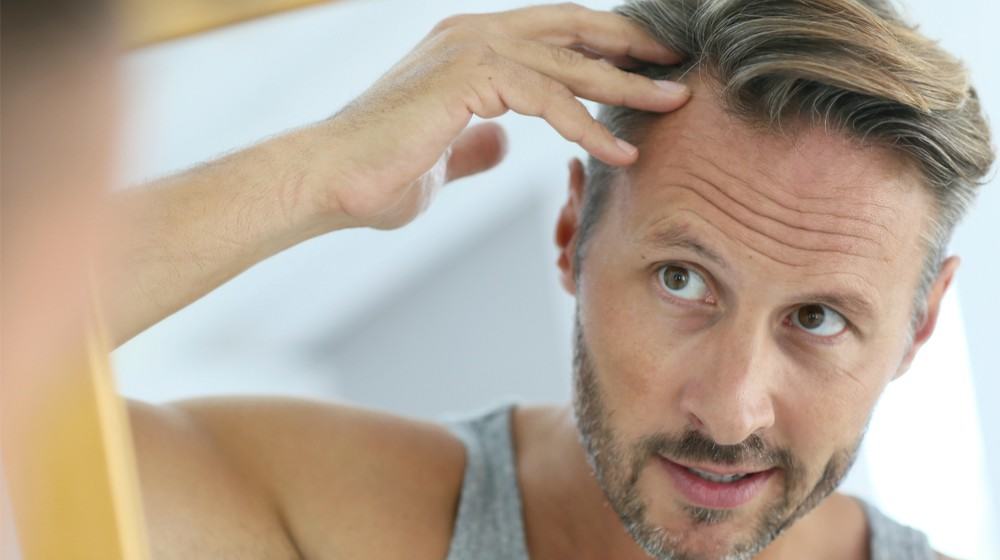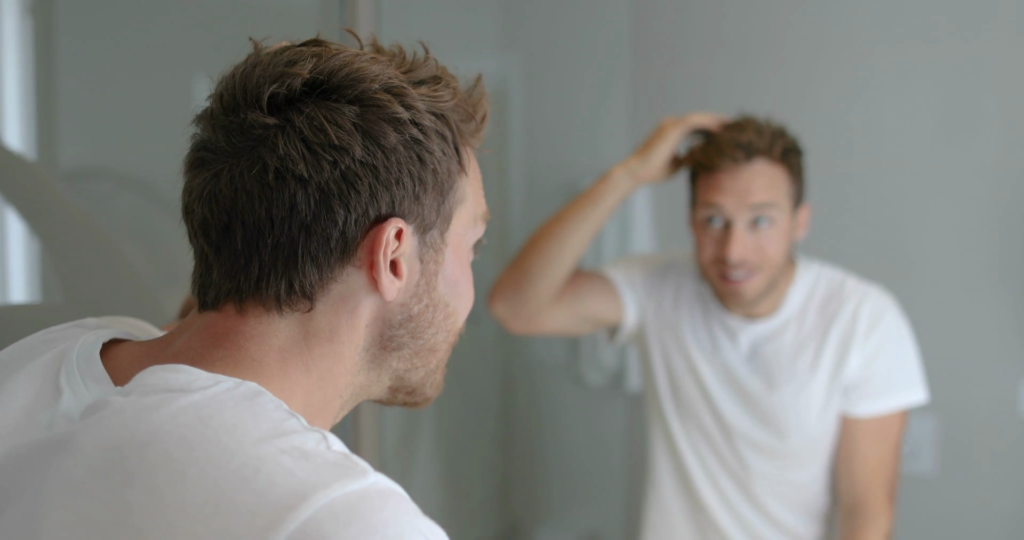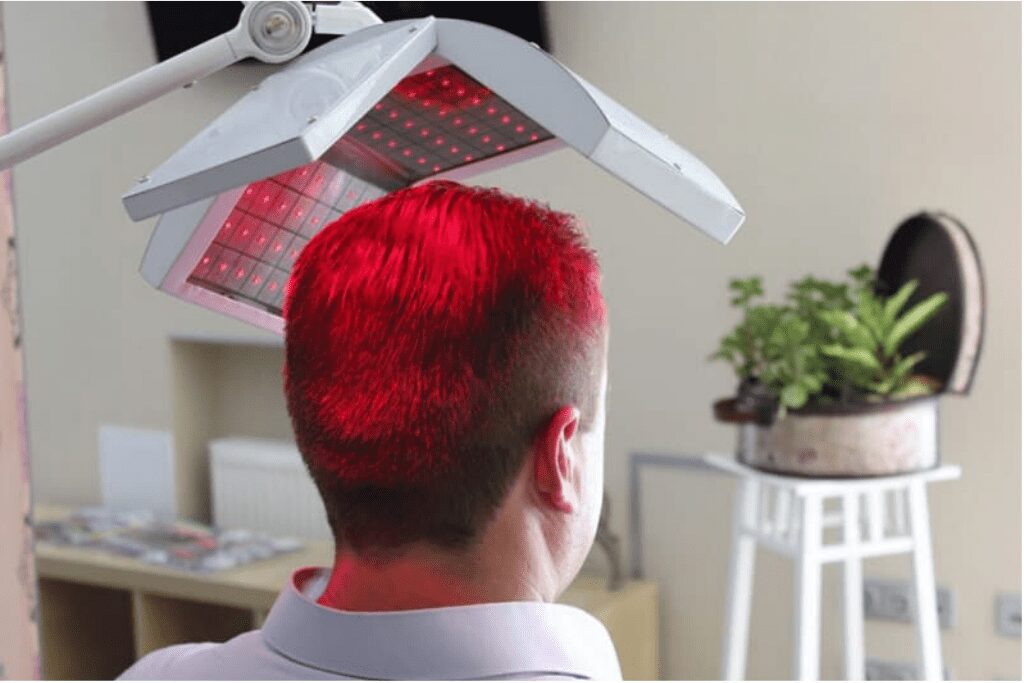
How to Growth Thicker Hair
Does your hair continue to get thinner as you age? Do you miss your full head of hair from your younger years? Well, all may not be lost. It’s entirely possible that you can grow thicker and fuller hair. It all depends on how quickly you address the underlying issue.
The Causes of Thinning Hair

Thinning hair (which often leads to balding) is something that millions of men and women deal with on a regular basis. Some people experience thinning slowly and steadily, while others have an immediate onset of hair loss. Every situation is different, but thinning hair typically has to do with one of the following:
- Age. If you live long enough, you’re almost guaranteed to experience some degree of hair loss. For some people, it starts around the age of 40, while others don’t experience noticeable hair loss until the age of 60 or 70. Either way, Father Time will eventually catch up with you.
- Genetics. The onset of hair loss is often dependent on your genes. If most of the men in your family tree began losing their hair around the age of 30, you likely will too. But if your family tree has no history of hair loss, you have a much better chance of enjoying thicker hair for a longer period of time.
- Stress factors. Sometimes thinning hair is brought on by stress factors, illnesses, or traumatic events. For example, many women experience hair loss shortly after childbirth. Likewise, some people experience thinning hair after having an operation or procedure.
- Haircare. How you style and care for your hair can impact its overall health. Using harsh chemicals and tight hairstyles (like braids) can put unnecessary pressure on your hair follicles and accelerate and/or increase hair loss.
- Medication. There’s a long list of medications that are known to cause hair loss (or accelerate underlying hair loss). Cancer drugs like chemotherapy are the ones people automatically think of, but there are dozens of others. If you suspect one of your medications may be causing hair loss, consult with your doctor to learn more.
In some situations, one of these underlying factors is to blame. In other scenarios, a combination of factors converge and cause hair to thin.
3 Ways to Growth Thicker, Lusher Hair
If you want thicker and lusher hair, there are a few specific steps you can take:
1. Improve Your Diet and Nutrition

Hair growth and health are highly dependent on factors like age, genetics, and your overall health.
“Although you can’t change factors like age and genetics, diet is one thing you have control over. In fact, consuming a diet lacking the right nutrients can lead to hair loss,” Healthline mentions. “On the other hand, eating a balanced diet with the right nutrients can help promote hair growth, especially if you’re experiencing hair loss due to poor nutrition.”
A hair-healthy diet includes foods that are rich in protein, biotin, essential fatty acids, iron, magnesium, and zinc. To incorporate these nutrients into your diet, consider eating more eggs, avocados, sweet potatoes, berries, salmon, shrimp, oysters, nuts, seeds, soybeans, and lean red meat.
Likewise, there are certain foods that you’d be wise to eliminate from your diet. Dairy, for example, contains a lot of fat. This fat increases testosterone levels in your body and makes you more prone to hair loss, among other things.
Refined sugar is another one. Sugar is known to cause poor blood circulation, which means it has the potential to inhibit blood flow in the scalp. It also elevates testosterone levels. Check out HealthEd Academy for ways to balance your testosterone levels.
Other foods to avoid include refined carbs, greasy food, carbonated drinks, and alcohol. These items can be enjoyed in moderation, but excessive consumption won’t do your hair any favors.
2. Consider Various Treatment Options

Changing your diet and being more intentional about your hairstyle is a great start. However, you aren’t going to see immediate results. Your hair could stop thinning, but you may need a jumpstart to help you regrow hair. This is where additional treatment options come into play.
One of the most effective treatment options is a process known as low level laser therapy (LLLT). This method, which can be safely done using a laser cap, enhances cellular respiration and stimulates dormant hair follicles. With consistent treatment (usually 30 minutes daily), hair loss stops and new growth becomes noticeable within several months.
It used to be that LLLT could only be done in clinical settings. But today, FDA-approved laser caps are able to be used in the convenience of your own home.
The Kiierr 272 Premier MD is one of the best (boasting a 93 percent success rate in clinical studies). It even comes with a seven-month money-back guarantee if you don’t see results within the first seven months of using the laser cap.
3. Look Into One of These Medications

Another option is to use medication. This is the least desirable option of the three, but it can produce the quickest results. The two most common and effective options are:
- Minoxidil. Widely known by the brand name Rogaine, this over-the-counter prescription comes in liquid, foam, and shampoo forms. It’s typically applied directly to the scalp once or twice daily. Minoxidil is known to slow the rate of hair loss. In many situations, it also helps regrow hair.
- Finasteride. This prescription drug is usually sold under the name Propecia. It’s taken in a pill form and helps slow and grow hair. In some situations, a doctor will recommend a patient take both minoxidil and finasteride for a period of time.
While these medications aren’t very expensive, they do require continued use. As soon as you stop taking the medication, your normal rate of hair loss will return. It’s a temporary yet effective option. As long as you go into it with that mentality, you’ll like the results.
Putting it All Together
Growing hair is obviously a biological matter. However, if you understand what’s causing your hair to thin and understand how to regrow hair in a healthy manner, you can overcome this issue and enjoy a greater sense of self-confidence. While this article provides some keen insights to help you grow thicker hair, it’s always a good idea to meet with your doctor to develop a plan that’s safe and healthy for you. Consider scheduling an appointment before making any significant changes.
